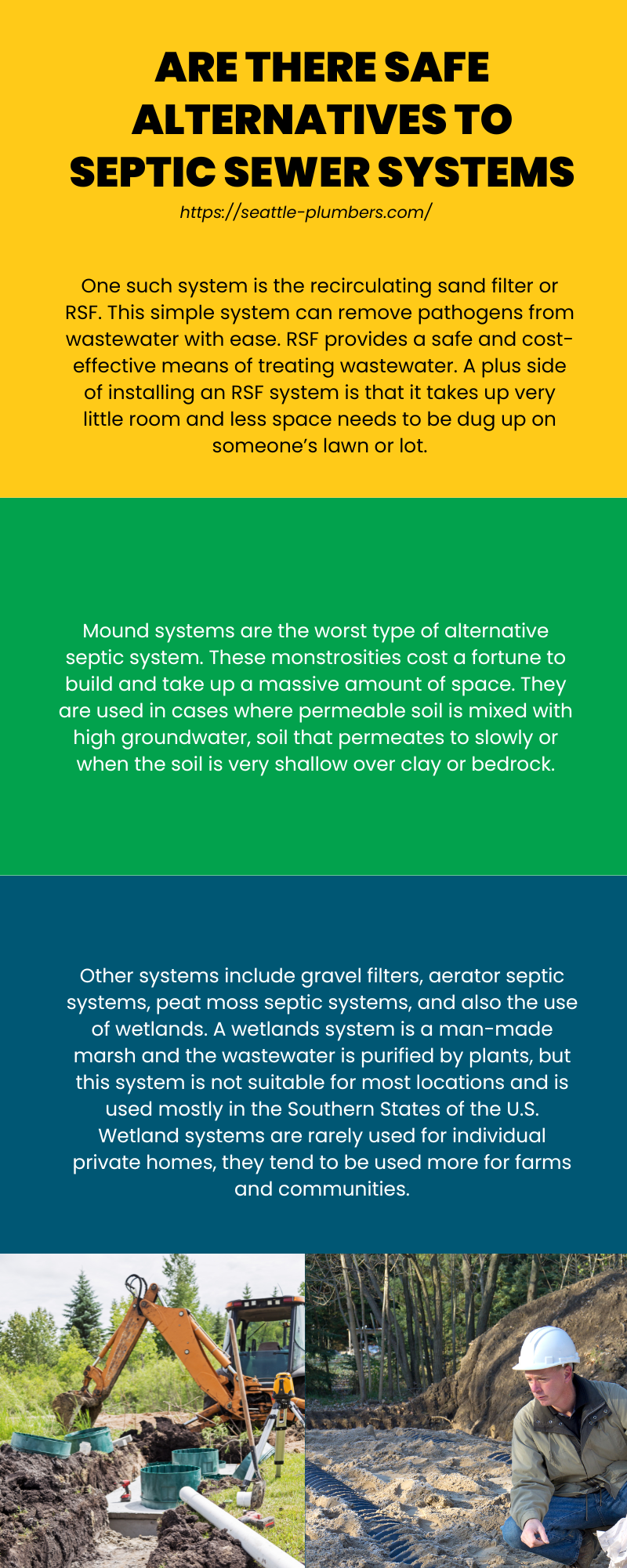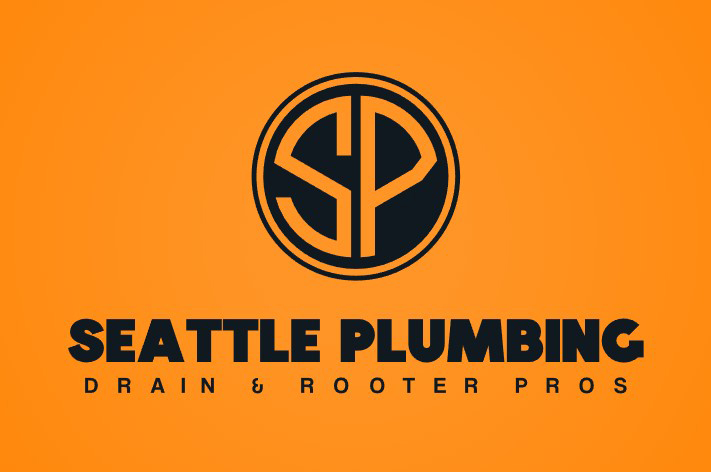If your property’s soil is not suitable for a traditional septic tank you do have options. There are alternative systems that can be out into place instead of a typical septic system. You could end up requiring an alternative measure as well if there are too many standard traditional septic systems in your area. An alternative might also be required in the case of septic systems residing to close to ground or surface water. These alternate systems are used mostly on properties that have limited soil or other problems and conventional systems will address the problem.

Seattle Plumbing, Drain and Rooter Pros Can Help Guide You For Alternative Options For Septic Systems Replacement
Homeowners across the United States are also being forced to turn to alternative septic systems. This is mostly due to regulators, environmental activists, and engineers decreeing that older traditional septic systems are failing and newer complex and expensive alternatives must instead be used. In many cases these systems are unnecessary but instead are being forced on homeowners by manciple governments. Clearly, there are times when alternative systems must be put into place, but this is not always the case. The only time these newer alternative septic systems truly NEED to be used is when the soils are unsuitable for a traditional septic tank or when property lots are too small for conventional systems.
New technology has made these alternative systems available for wide spread use, addressing a need that many home owners have had. In the past if you could not install a septic system you had to employ less reliable measures. The down side to these new alternative septic systems is that they often require special care and maintenance. A number of alternative systems exist however so should you run into problems and cannot use a traditional gravity fed septic system you have plenty of options, but you should consult a plumbing company or a water damage professional for guidance in selecting the right unit suitable for your properties unique set of circumstances.
One such system is the recirculating sand filter or RSF. This simple system can remove pathogens from wastewater with ease. RSF provides a safe and cost-effective means of treating wastewater. A plus side of installing an RSF system is that it takes up very little room and less space needs to be dug up on someone’s lawn or lot. An RSF is placed between a traditional septic tank and trenches. Wastewater moves from the septic tank to a recirculation tank, and then to the recirculating sand filter. The wastewater is pumped repeatedly through the RSF at least 5 times before it is discharged into the drainage field. The gravity overflow system that the RSF employs ensures that the recirculating tank does not drain completely and thereby reduce the efficiency of the system. The gravity overflow system also helps to prevent the contents from freezing during the winter. The downside to this system is that the timer control must be checked monthly to ensure it is working correctly, if not untreated wastewater may drain into the drain field.
Mound systems are the worst type of alternative septic system. These monstrosities cost a fortune to build and take up a massive amount of space. They are used in cases where permeable soil is mixed with high groundwater, soil that permeates to slowly or when the soil is very shallow over clay or bedrock. It is created by raising the drain field above ground using a sand bed over the soil and then a gravel bed atop of this sand. The mound is finished by covering up the gravel bed. Mound systems are run by electrical pumps so they fail when the power is out. Mound systems are also prone to failure and are very cost-prohibitive.
Other systems include gravel filters, aerator septic systems, peat moss septic systems, and also the use of wetlands. A wetlands system is a man-made marsh and the wastewater is purified by plants, but this system is not suitable for most locations and is used mostly in the Southern States of the U.S. Wetland systems are rarely used for individual private homes, they tend to be used more for farms and communities.



